During the three-year period 2021-2023, RESANAS developed AKILLE, an innovative controlled dry sanitising process for ‘universal’ materials, which, through the oxidising action of a gas mixture under controlled conditions, has enabled process certifications to be obtained on all 18 types of materials subjected to the process and representative of those used in the production and trade of consumer goods.
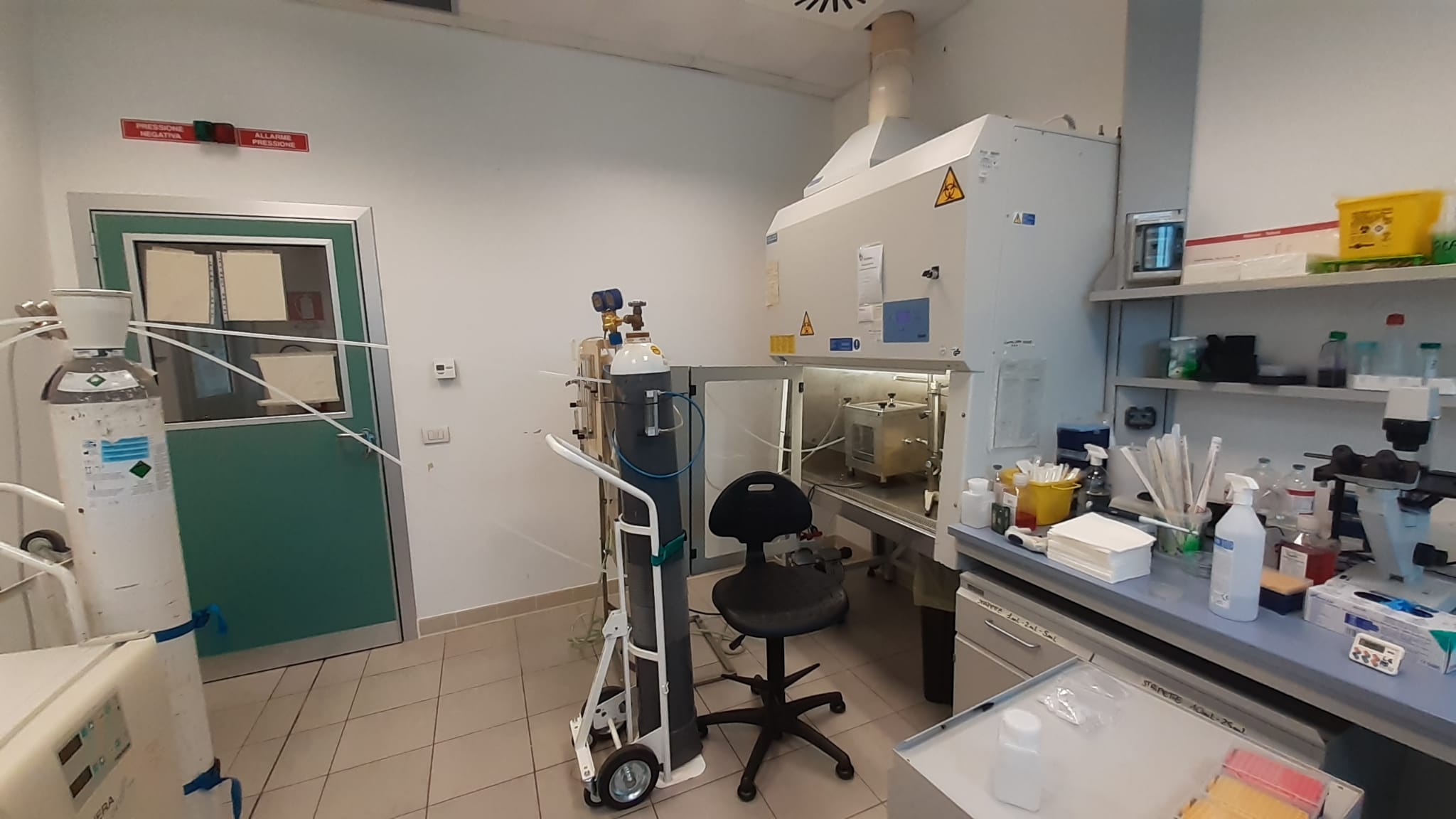 It is certified that the spread of many viruses such as SARS-CoV2 occurs by air and/or through contact with the respiratory tract. According to recent studies, viruses are able to remain suspended in the air for prolonged periods and, once deposited, depending on the material, survive on surfaces for long periods of up to several months.
It is certified that the spread of many viruses such as SARS-CoV2 occurs by air and/or through contact with the respiratory tract. According to recent studies, viruses are able to remain suspended in the air for prolonged periods and, once deposited, depending on the material, survive on surfaces for long periods of up to several months.
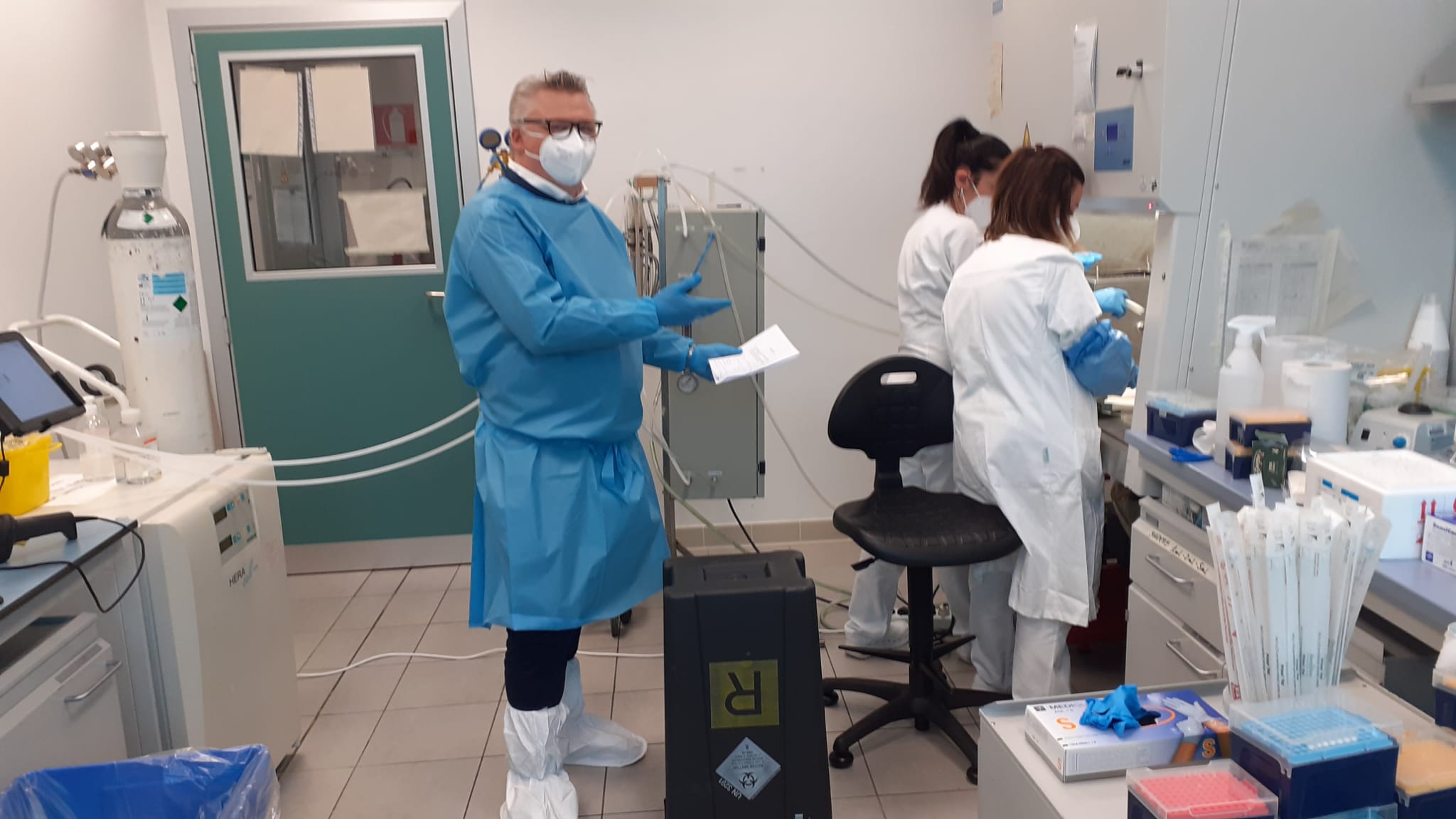
Environmental contamination can also promote contact infections by self-inoculation through the hands in contact with the mucous membranes of the nose, eyes and mouth.
Fathizadeh et al.(2020) showed that depending on surfaces and materials, SARS-CoV-2 can resist from a few hours to a few days, allowing indirect transmission by contact with the contaminated environment. In particular, SARS-CoV-2 would resist up to 4 hours on copper surfaces, up to 8 hours on latex gloves, 2 days on surgical gowns, 2-3 days on steel, 4 days on glass, 4-5 days on wood, 5 days on metal, 4 days to 9 days on plastic and 1 day to 5 days on paper.
Riddel et al. (2020) has shown infectious SARS-CoV-2 recovered from different types of contaminated (non-porous) surfaces such as banknotes, stainless steel, glass, villic resins for at least 28 days (at room temperature and 50% relative humidity).
The viable SARS-CoV-2 was also isolated from surgical masks 7 days after use in a contaminated environment (Chin et al. 2020). Increasing the temperature drastically reduces virus survival to 24 hours at 40 °C
To date, AKILLE has obtained 3 different certifications including:
- MICROBIOLOGICAL SANITIFICATION CERTIFICATION, thanks to the close collaboration with the level 3 microbiological analysis laboratory of UNIBO (University of Bologna), whereby all 18 materials subjected to SARS-COV19 infection and subsequently sanitised according to the AKILLE protocol, were microbiologically sanitised from viruses and pathogens with analysis carried out after the 48-hour incubation period.
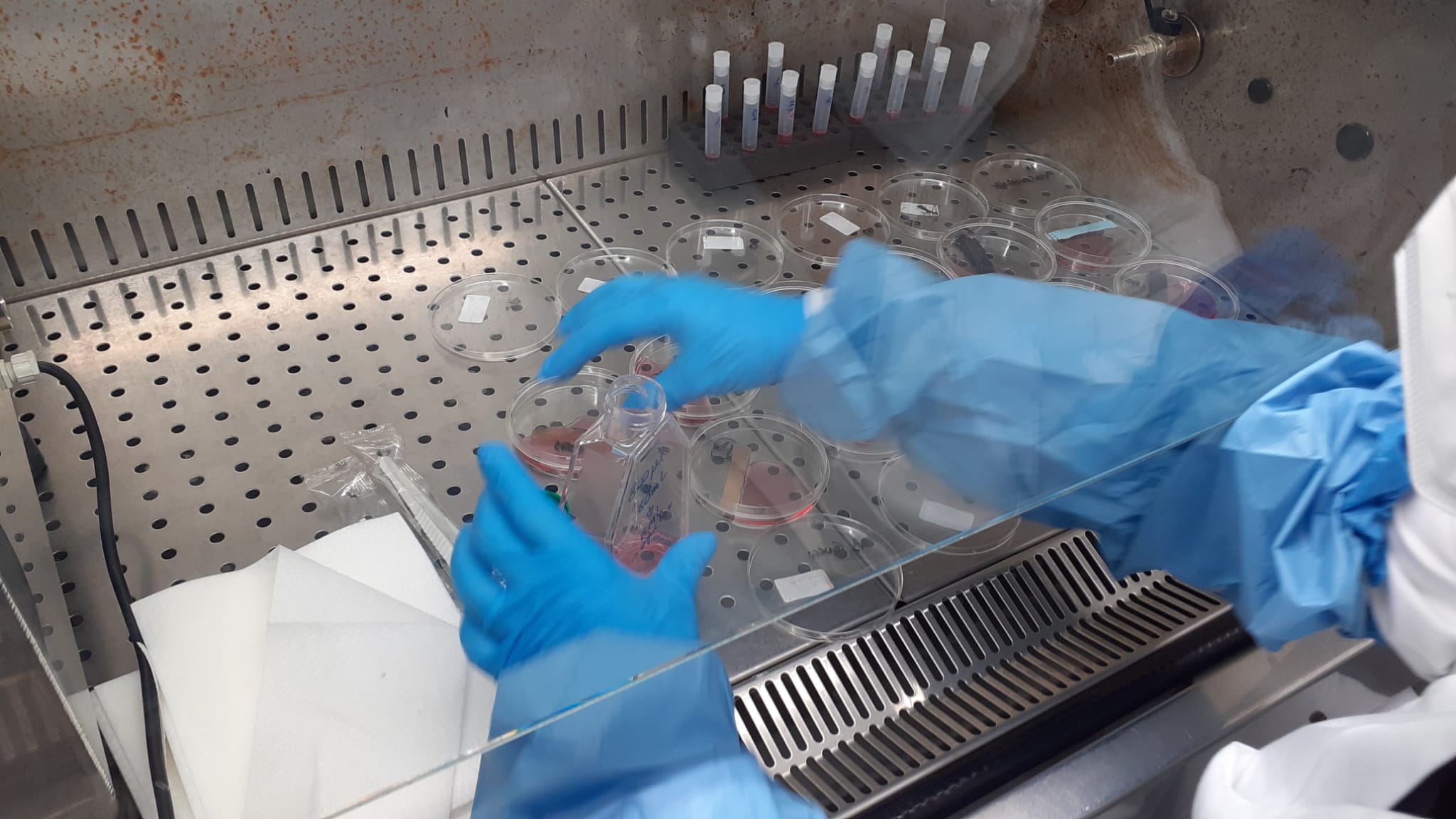
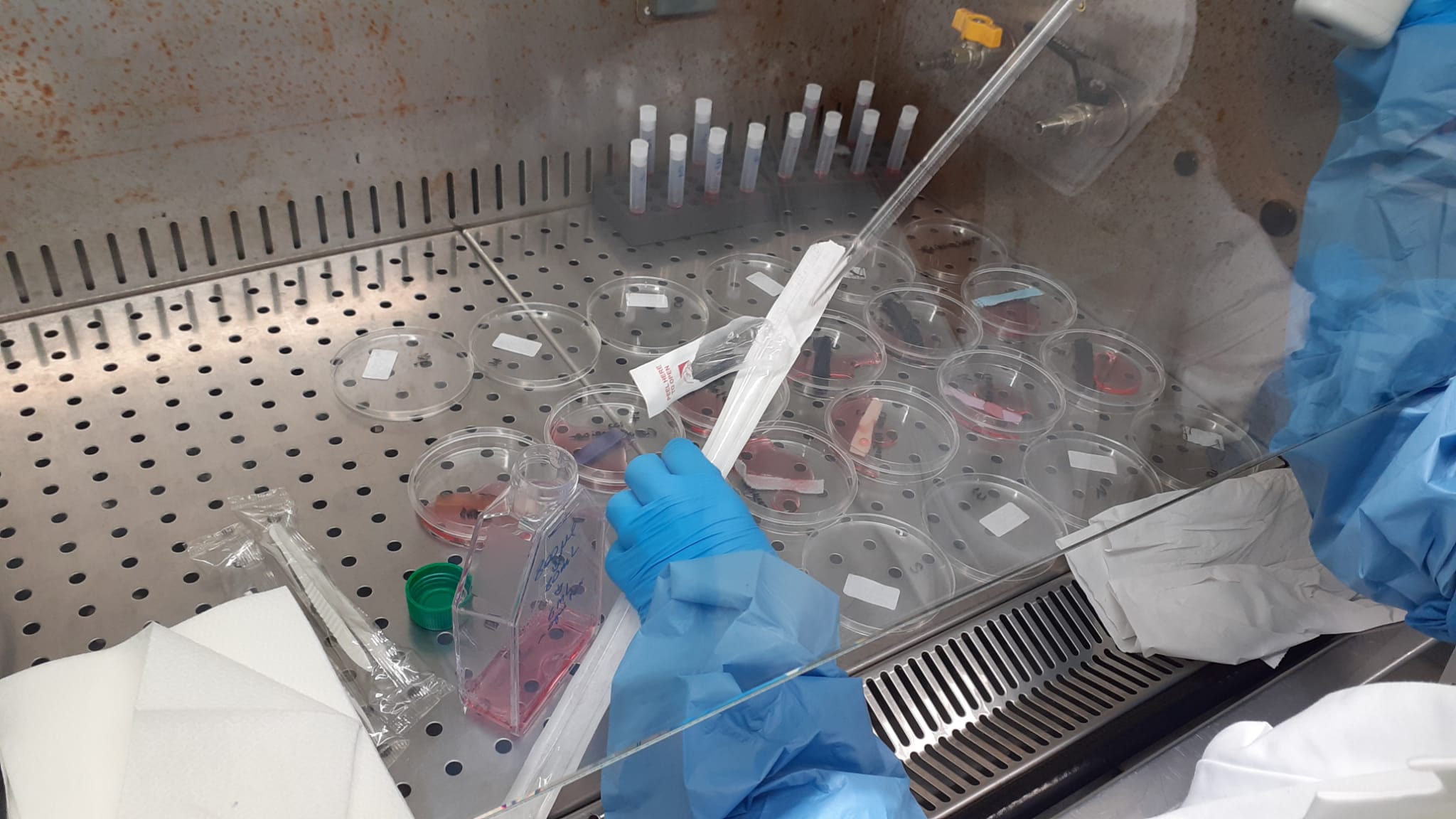
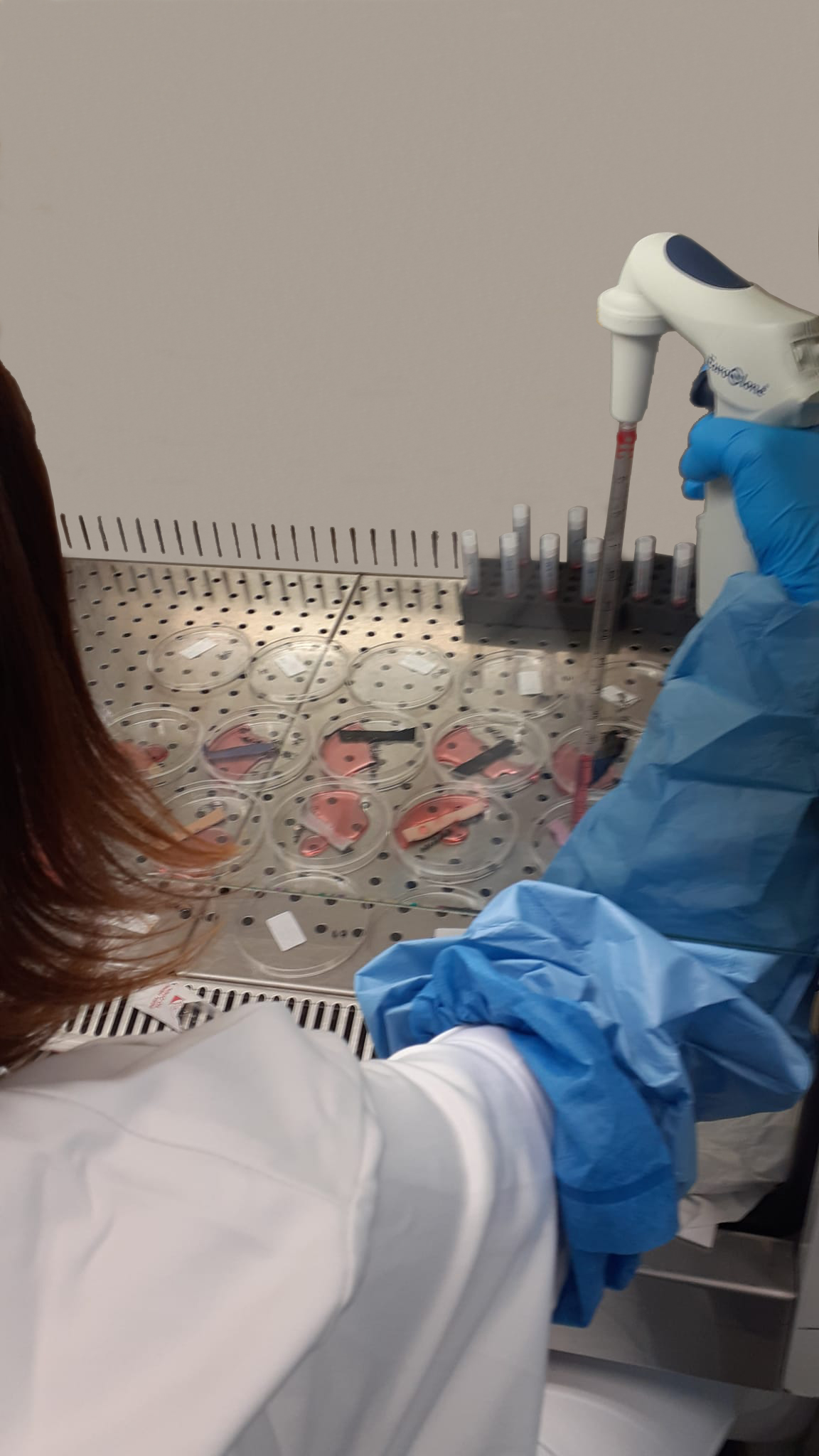
- QUALITY CERTIFICATION OF MATERIALS at the analysis laboratory of the Citta’ Studi university campus in Biella, of which:
- Structural Certification through the analysis of tensile variations between individual ‘Sanitised’ versus ‘Original/unsanitised’ samples using a Gester GT-C01-1C double column dynamometer, operating according to the relevant ISO standards on fabrics [12] and yarns [13] (ISO 13934-1:2013 and ISO 2062:2009),
- The Colorimetric Certification through the analysis of the colorimetric variations of the ‘Sanitised’ samples with respect to the ‘Original/unsanitised’ ones, using a Datacolor 550 Reflection Spectrophotometer, operating according to ISO standards [7, 8], whereby (according to ISO 105-J01:1997 and ISO 105-J03:2009).
